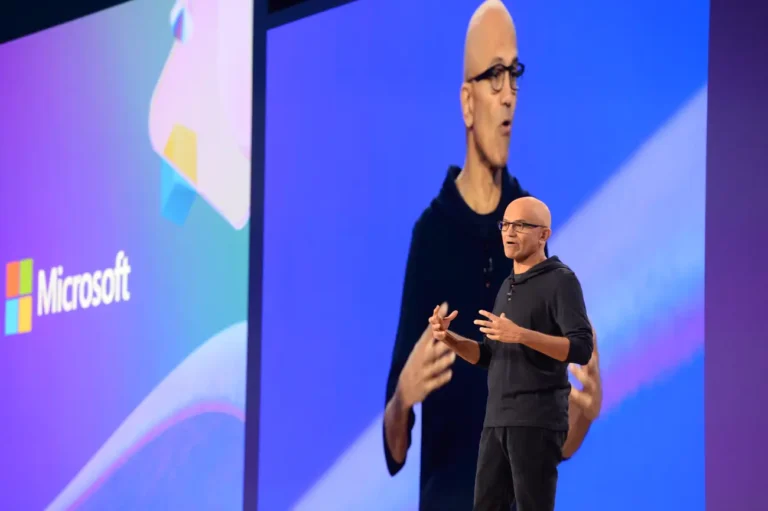5 successful real-estate investors who started with as little as $5,000 in savings explain how they leveraged FHA loans to buy their first properties

- An FHA loan is a government-backed mortgage designed to help people in less-than-ideal financial situations buy a home.
- An FHA loan only requires a 3.5% down payment, 43% debt-to-income ratio, and 580 credit score.
- Insider spoke with successful real estate investors who leveraged this type of loan to get their starts.
Before dismissing real estate as too expensive to invest in, you should weigh all of your options.
Insider spoke with a few property investors who began with little to no savings — and many of them used an FHA loan to purchase their first property.
Here’s how it works and how you can use one to purchase real estate and begin accumulating long-term wealth.
What exactly is an FHA loan?
An FHA loan is a government-backed mortgage (meaning that if you default on your mortgage payments, the Federal Housing Association compensates your lender) designed to allow people in less-than-ideal financial situations to purchase a home.
There are still requirements to meet in order to qualify, but the borrowing requirements are less stringent than those of a conventional loan: An FHA loan requires only a 3.5% down payment, a debt-to-income ratio of 43%, and a credit score of 580. You can even apply for one with a credit score as low as 500; however, if your score is between 500 and 579, you’ll need a 10% down payment.
The FHA limits the amount you can borrow, and there are other requirements, such as purchasing a primary residence and living in it for at least a year before renting it.
There are various types of FHA loans, ranging from a traditional mortgage for your primary residence — the most common — to a 203(k) rehab mortgage to make home improvements, which is how Seattle-based investor and co-founder of Evergreen Housing Network Ludomir Wanot was able to purchase his first property.
Wanot, who worked with his brother on his first deal, found a single-family fixer-upper for $138,000 and used an FHA 203(k) loan to finance the purchase and renovation.
Wanot told Insider that without this type of loan, they wouldn’t have been able to afford the $30,000 renovations. “We were in for no more than $10,000,” he said, because they rolled the remodeling costs into the loan balance and put down 3.5%.
They split the initial costs, so each paid less than $5,000. That first deal led to many more, and Wanot was eventually able to leave his six-figure job at Amazon to focus full-time on real estate investing and wholesaling.
How ordinary people have used FHA loans to purchase property and build wealth
Karina Mejia, a Boston-based investor, used an FHA loan to purchase her first property at the age of 22. In a high-priced market like Boston, a low down payment would be critical for her to get her foot in the door as a recent grad with limited savings.
She ended up closing on a $560,000 three-family home in 2019 with a $20,000 down payment, which is significantly less than what a conventional mortgage would require: 20%, or approximately $112,000. She moved into one unit and rented out the other two, claiming that the rent nearly covered her entire mortgage payment.
Because of her low monthly housing payment, she was able to save enough money to purchase her second property the following year.
“In the US, you can only carry one FHA loan at a time, so we joke in the industry that you need to use your FHA before you get married,” she and her partner Sasha explained. It’s a joke, but it’s sound advice: Before you get married, each of you should get your own FHA loan.”
Mejia financed her second property in Boston, a multi-family home, but the mortgage is in Sasha’s name. They moved into one unit and rented out the other two to reduce their housing costs.
Avery Heilbron, a Boston-based investor, used an FHA loan to purchase his first property, a $525,000 multi-family, and put about $18,000 down.
“It smelled awful.” “There was mouse feces all over the place,” he recalled. “Then I realized I had to live there — legally, you’re required to move in within 30 days because of insurance — so I spent every waking hour after work renovating it and turning it into a livable space.”
He and his girlfriend moved into the downstairs unit after a month of repairs. They had a roommate in the other bedroom of the two-bedroom apartment. His girlfriend paid $400 in rent for her half of the room, while his roommate paid $800. Heilbron also rented out the four-bedroom upstairs unit to a family for $2,400.
His rental income was $3,600 per month, which more than covered his $3,300 mortgage payment. Heilbron went from paying $1,100 in rent every month to living for free and profiting $300 per month. That $1,400 swing enabled him to save for his second home, which he purchased less than a year later, in May 2020.
A mile away from his duplex was a $678,000 three-family home. He refinanced the duplex to free up the FHA loan. Again, he put down 3.5%, or approximately $24,000.
Affording the 3.5% down payment with grants and other down payment assistance programs
While a 3.5% down payment is relatively low, it may be too much for some first-time homebuyers.
When Natia and Jervais Seegars were looking to buy their first home, they only had about $5,000 in cash. They were in North Carolina at the time and had found a $191,000 single-family home to finance with an FHA loan.
A 3.5% down payment on a $191,000 home would be around $5,700 — and that doesn’t include closing costs, which are typically 2% to 5% of the loan cost.
Natia and Jervais had less, but they were able to close with only $2,000 of their own savings thanks to a $5,400 grant that they qualified for at the time: The Genesis Program, which provides down payment assistance to low- and middle-income home buyers who use an FHA loan.
“We moved in on the same day we closed.” “We couldn’t wait,” Jervais recalled. The majority of their furniture remained in their apartment that first night, “so we spent the night on an air mattress and got temporary blinds to put up.”
Do your own research to learn about the resources available to you. You may be eligible for down payment assistance, as the Seegars were.
You may be eligible for a VA loan if you are a Veteran, active-duty service member, or the surviving spouse of a Veteran. This is a type of VA-guaranteed mortgage loan that requires no down payment, no private mortgage insurance (PMI), and has the lowest average fixed mortgage rates.
According to Wanot, there is a widespread misconception that you must put down 20% and save tens of thousands of dollars to purchase a home. “That is not the case at all. Using an FHA loan, you can get your foot in the door without spending a lot of money up front.”
On top of that, “the less cash I can come into a property with, the more properties I can continue to buy,” he said.






